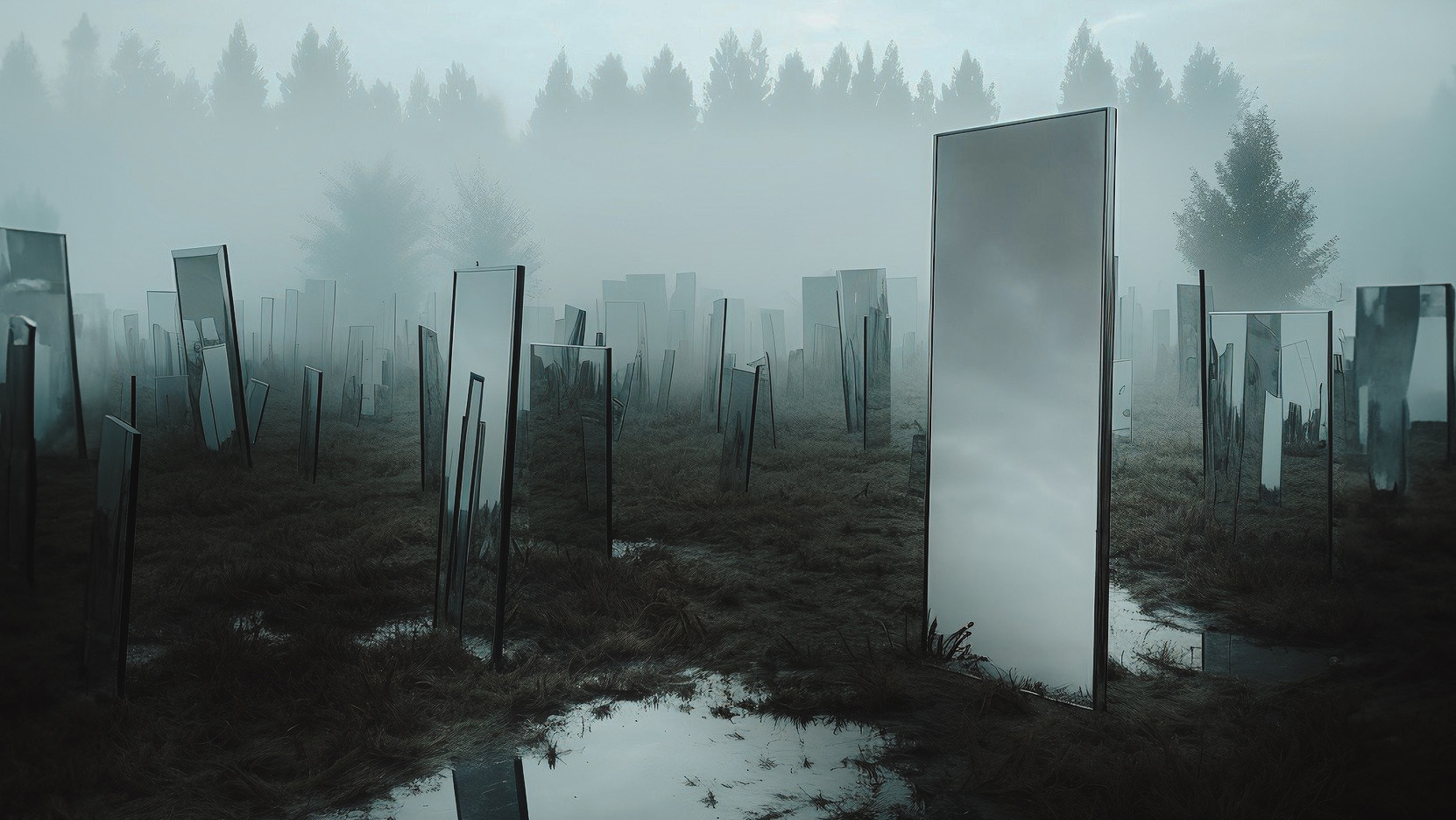
Back to blog
Education
October 2, 2024
Lions, Lambs, and Echo Chambers
How Christian Warriors Prefer Safety Over Battle—And Call It Holiness
In an age dominated by social media algorithms that sanitize offense, deepen segregation through identity politics, polarize platforms, and silence dissent that challenges the schemes of a power-hungry aristocracy, the echo chamber reigns supreme. It is a paradox of our times: never have people been more vocal, yet never has genuine conversation seemed more elusive. Despite the explosion of communication channels that should unite us, we find ourselves curating our own images and amplifying our own voices in slavish conformity to the cult of the self. This chorus of sound and fury occurs in isolation, often ignorant of alternatives—and, more troubling still, oblivious to the existence of objective truth.
The world has carefully crafted these echo chambers to stifle truth, and though it takes on a different guise, Christians are not immune to the same temptation. Many fall prey to a survivalist mindset that mistakes withdrawal from the world for piety. They find themselves ineffective torchbearers in a world shrouded in darkness, unaware they’ve become captives in their own echo chambers. This self-imposed isolation makes escape improbable. They languish in intellectual comfort, content with theorizing for its own sake, their existence unchallenged, their convictions untested. Conversations remain academic, confined to exchanges between like-minded peers, devoid of the tension and conflict necessary for meaningful impact.
Among these are the critics, those who mistake verbal stone-throwing for engagement. They jeer from the sidelines, casting aspersions at those in the arena without ever entering it themselves. Their critique, sharp as it may be, accomplishes nothing. For all their acumen, they are merely performers in a soliloquy, applauding the echo of their own voices without ever landing a blow on the real enemy.
Victory does not belong to the theoretical but to the practical—the men and women whose theology finds expression not just in words but in deeds.
The illusion of potency in these echo chambers is seductive. It offers the comfort of self-preservation but produces nothing of true substance. It is a realm governed by the ethics of appearance and appeasement, where knowledge is wielded not for transformation but for self-congratulation. Even in the presence of wisdom and insight, the benefits are reserved for an elite circle. In such spaces, there is no need for the art of persuasion, no necessity to confront the fundamental presuppositions that conflict with Christianity. Participants mistake their verbal virtuosity for genuine influence, failing to recognize they are actors in a play, not soldiers in a war.
Among those often dubbed "the Reformed," we see a tendency to don academic robes but seldom to wield the sword of reformation in the present. Their scholarly work is admirable, but they remain more concerned with historical victories—defeating Arminianism or dismantling Vatican doctrine—than confronting the enemies before them today. Diagnosis without action is their downfall; they can identify the problem but lack the courage or tools to strike where it would hurt most.
True combat demands strikes that land. It requires competence, courage, and the willingness to step into the ring, to endure blows, and keep moving forward. Victory does not belong to the theoretical but to the practical—the men and women whose theology finds expression not just in words but in deeds.
The battle for culture cannot be won in silos. It requires engagement with the world as it is, not as we wish it to be. Social media affords platforms for truth, but too often, these platforms become echo chambers themselves, with "slam-dunk" posts lauded by the like-minded but failing to engage the opposition. This is fine if the goal is merely to edify one’s allies, but if we imagine that every clever post eliminates a purple-haired leftist antagonist, we are deluded. Real engagement comes from face-to-face confrontation, where the challenges are direct, the stakes are high, and persuasion is an art. Only here do we distinguish the men from the boys.
This is the essence of Reformation: fighting evil, building culture, and standing as a beacon of truth, beauty, and goodness.
Building cities on a hill, cities that cannot be hidden is the antidote to echo chambers. These cities are marked by faithfulness and fruitfulness, by a culture that reforms and builds, even against overwhelming odds. Reformed theology, if it is worth its salt, must produce a culture where the values, beliefs, and practices of a people are subordinated to the authority of God’s Word. It must go beyond mere doctrine, forming a way of life that promotes honest enterprise, just governance, thriving economies, excellent art, good education, scientific breakthroughs, and flourishing families. Such a culture draws curiosity, invites opportunity, and provokes opposition.
And when opposition comes, as it always does, Christians must be prepared to give a reason for the hope within them. This is the essence of Reformation: fighting evil, building culture, and standing as a beacon of truth, beauty, and goodness.
A good Christian Liberal Arts education plays a crucial role in this fight. It immerses students in the thoughts of great authors, exposing them to the ideas that shaped great civilizations and tracing God’s hand across history. It frees students from the tyranny of the present moment, from the illusion that today’s concerns are all that matter. By studying the past, they gain the tools to be faithful in the present and shape the future. They are equipped to engage in apologetics that not only destroy arguments but also build solutions. They learn to see their unbelieving neighbors not as adversaries to be silenced but as souls in need of the truth, beauty, and goodness that only Yahweh can offer.
Echo chambers are short-sighted, institutions of ignorance. Only by recognizing God as the master storyteller—author of a grand narrative that transcends the present—can we break free from their deceptions and take up the real work of reformation.